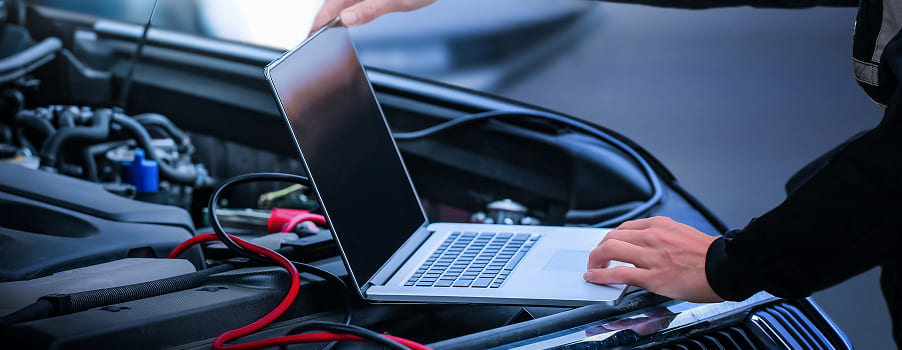04 April 2025
Often, vehicle owners overlook the subtle signs that indicate their car is due for a tune-up. While minor issues may seem harmless at first, neglecting them can lead to costly repairs and unexpected breakdowns.
Recognizing early warning signs like odd noises, declining performance, dashboard alerts, reduced fuel efficiency, and unusual exhaust emissions can help you take timely action.
Addressing these concerns with a professional tune-up can enhance reliability, improve fuel economy, and keep you safe on the road.

1. Strange Noises: What Unusual Sounds Could Mean
A well-functioning car should operate quietly and smoothly. If you hear unusual sounds such as knocking, squealing, grinding, or hissing, your vehicle might be signalling a problem.
Knocking noises could indicate engine troubles, while squealing during braking might mean worn-out brake pads. Grinding sounds often point to transmission issues, and a constant hissing noise may suggest a coolant or vacuum leak.
Ignoring these warning signs can lead to further damage, making timely diagnosis and repair essential to prevent costly mechanical failures.
2. Decreased Performance: Why Your Car Feels Sluggish
Does your vehicle struggle to accelerate, feel sluggish, or take longer than usual to start? A drop in performance often stems from worn-out spark plugs, clogged fuel injectors, or a failing oxygen sensor—all crucial components for efficiency and responsiveness.
When these parts deteriorate, your engine works harder, leading to higher fuel consumption and increased strain. A professional tune-up can resolve these issues by inspecting and replacing necessary components, ensuring your car runs optimally.
3. Dashboard Warning Lights: Don't Ignore Those Indicators
Modern vehicles come equipped with dashboard warning lights to alert drivers of potential problems. If a check engine light, battery warning, or oil pressure indicator appears, don’t ignore it!
Some lights warn of minor issues, but others signal critical mechanical failures. For example, a check engine light may indicate anything from a loose gas cap to a failing catalytic converter. A battery warning could mean trouble with the charging system, while an oil pressure alert may suggest low oil levels or lubrication problems.
A thorough diagnostic check during a tune-up can pinpoint the exact issue, preventing further damage.
4. Reduced Fuel Efficiency: Why You’re Spending More on Gas
If you notice more frequent visits to the gas station despite unchanged driving habits, your vehicle may be experiencing poor fuel efficiency.
Dirty air filters, faulty spark plugs, or under-inflated tires can all contribute to excessive fuel consumption. A tune-up helps optimize components, ensuring your vehicle burns fuel effectively while keeping costs manageable.
5. Excessive Exhaust Smoke: What the Smoke Colour Reveals
While some exhaust smoke is normal, excessive or discolored emissions can signal serious engine problems
While some exhaust smoke is normal, excessive or discoloured emissions can signal serious engine problems
Blue smoke suggests an oil leak, often caused by worn piston rings or valve seals. White smoke may indicate a coolant leak—possibly due to a blown head gasket or engine block damage. Black smoke implies the engine is burning excess fuel, potentially due to a faulty injector or clogged air filter.
Detecting these issues early helps prevent severe engine damage, and a tune-up can restore your vehicle’s proper functioning.
Addressing these concerns with a professional tune-up ensures your car remains reliable, fuel-efficient, and safe on the road. If you’ve noticed any of these signs, schedule a tune-up with Granger Service today. Our expert technicians are ready to provide top-tier service and keep your vehicle running smoothly for miles to come.
Book your service today and travel with confidence!


